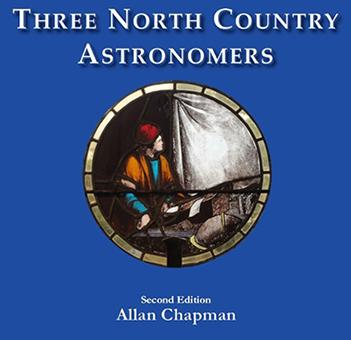See below a selection of the latest printed publications from the Christ Church community.
Art History Now: Objects, Concepts, Approaches (Columbia University Press 2026)
Edited by Geraldine Johnson
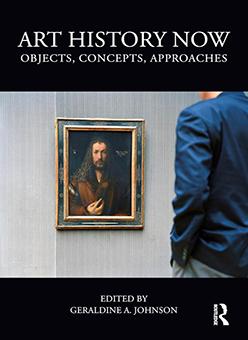
‘This volume presents definitive essays by internationally renowned experts and innovative younger scholars on the wide range of approaches used by art historians past and present to analyze images, objects, buildings, and performances.
‘It provides critical considerations of key methodologies, from formalism and iconography to social history and psychoanalytic approaches. It foregrounds fundamental concepts, from the artist, the beholder, and the frame to museums, canons, and periodization. At the same time, it broadens art itself as a category by considering photographs, digital media, performance, architecture, and visual culture more generally. The chapters also explore new approaches and new points of view that have expanded Art History’s remit in exciting ways in recent years by addressing growing interest in race, ethnicity, and the legacies of colonialism; gender identity and sexuality; ecocritical approaches to making and consuming art; materiality and the senses; digitally informed methods; the nascent field of Disability Studies; and scientific research on vision and on the technical analysis of works of art.
‘This comprehensive collection will be indispensable for students and scholars of Art History, as well as for readers coming from other disciplines who are seeking fresh approaches to visual and material culture.’
What Is Political Theology? (Columbia University Press 2025)
Written by Luke Bretherton, Vincent W. Lloyd and Valentina Napolitano

‘Political theology is widely discussed but little understood. Across the humanities and critical social sciences, even in popular discussion of current events, it has become a buzzword. Yet there is no consensus about its very definition.
‘This field-changing interdisciplinary book brings together three of the leading voices in political theology—a Christian theologian, a critical theorist, and an anthropologist—to offer new entry points to understand religion and politics. They explore similarities and differences in their approaches, guiding readers through scholarship in their own fields while also advancing a shared vision that speaks to crucial questions of justice in the contemporary world.
‘Rejecting the notion that political theology is a closed field with an established canon, the authors show it to be an open-ended, lively conversation that welcomes new participants. They demonstrate how voices and approaches from decolonial theory, Black studies, feminist and queer theory, new materialism, and ethnography, both in the Global North and in the Global South, are transforming the field.
‘This book addresses concerns about political theology’s ties to authoritarian and antidemocratic movements, demonstrating that an engaged political theology sheds critical light on volatile topics such as populism, racism, and ethnoreligious nationalism. At once accessible to students and groundbreaking for scholars, What Is Political Theology? provides a state-of-the-art global understanding.’
The Handbook of Dopamine (Academic Press 2025)
Edited by Stephanie Cragg and Mark Walton

‘The Handbook of Dopamine captures current understanding of dopamine biology in the brain, including anatomical organization of dopamine neurons, their molecular and genetic diversity, synaptic and circuit connectivity, receptor function and signalling, through to diverse roles in behaviors and finally, dysfunction in disease. This volume compiles a comprehensive set of perspectives from a large number of leading scientists working in dopamine research. The volume describes the current state-of-the-field, summarizing knowledge that has been transformed in the last decade through the advent and application of sophisticated new technologies.’
Art, Travel, and Exchange between Iberia and Global Geographies, c. 1400–1550 (Brill 2025)
Edited by Costanza Beltrami and Sylvia Alvares-Correa

'Traditional narratives hold that the art and architecture of the Iberian Peninsula in the late 15th century were transformed by the arrival of artists, objects, and ideas from northern Europe. The year 1492 has been interpreted as a radical rupture, marking the end of the Islamic presence on the peninsula, the beginning of global encounters, and the intensification of exchange between Iberia and Renaissance Italy.
'This volume aims to nuance and challenge this narrative, considering the Spanish and Portuguese worlds in conjunction, and emphasising the multi-directional migrations of both objects and people to and from the peninsula. This long-marginalised region is recast as a ‘diffuse artistic centre’ in close contact with Europe and the wider world. The chapters interweave varied media, geographies, and approaches to create a rich tapestry held together by itinerant artworks, artists, and ideas.
'Contributors are Luís Urbano Afonso, Sylvia Alvares-Correa, Vanessa Henriques Antunes, Piers Baker-Bates, Costanza Beltrami, António Candeias, Ana Cardoso, Maria L. Carvalho, Maria José Francisco, Bart Fransen, Alexandra Lauw, Marta Manso, Eva March, Encarna Montero Tortajada, Elena Paulino Montero, Fernando António Baptista Pereira, Joana Balsa de Pinho, María Sanz Julián, Steven Saverwyns, Marco Silvestri, Maria Vittoria Spissu, Sara Valadas, Céline Ventura Teixeira, Nelleke de Vries, and Armelle Weitz.'
Postcolonial Identities in Central Asian and Caucasian Literature (Oxford University Press, 2025)
Written by Tamar Koplatadze

‘Decoloniality has emerged as one of the most prominent subjects of public and academic debates of our time, bringing to the fore the post-colonial perspectives of previously underrepresented groups. Interest is similarly growing around the countries of the Caucasus and Central Asia, which have been part of the Russian and Soviet empires, and are now defining their independent, post-Soviet, and decolonial identities. Following the dissolution of the Soviet Union, literature has become a key platform for exploring what it means to be post-Soviet, and the extent to which post-Soviet identity is a post-colonial one.
‘It is at this point that this monograph intervenes as the first major study to examine post-Soviet literature from the Caucasus and Central Asia and to employ postcolonial theory as its methodology. Authors from Georgia, Armenia, Azerbaijan, Kazakhstan, Kyrgyzstan, Tajikistan, and Uzbekistan are placed in dialogue with each other to establish how they respond to the post-Soviet transition and negotiate their postcolonial identities in their fiction.’
Elizabeth Boleyn: The Life of the Queen’s Mother (The History Press, 2025)
Written by Sophie Bacchus-Waterman (Christ Church Library Digitisation Assistant)

'Elizabeth Boleyn has been overlooked for centuries. She is remembered only as a wife and mother, despite her illustrious court career that started long before her daughters, Mary and Anne, ever caught the king’s eye. Serving as Katherine of Aragon’s lady-in-waiting for eleven years, Elizabeth was at the heart of Henry VIII’s early reign, and she bore witness to the dramatic rise and downfall of her family.
'In this first narrative biography of Elizabeth Boleyn, her story is finally told. Beginning with her family’s dramatic flight from Norfolk to London after the Battle of Bosworth, Sophie Bacchus-Waterman charts Elizabeth’s life at the early Henrician court, follows her as her family rise to the pinnacle of their power, and ends with her tragic death just a couple of years after two of her children were brutally executed. This is the story of the Boleyn family – and the dramatic events of Tudor England – from an entirely new perspective.'
Heiresses: Marriage, Inheritance and Caribbean Slavery (Oneworld Publications 2025)
Written by Miranda Kaufmann (2001, History)
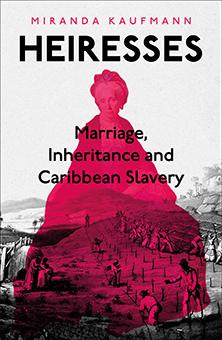
'Georgian heiresses are inescapable in British culture. They flutter through Jane Austen’s novels and countless period dramas. Their portraits – painted by Gainsborough, Zoffany, Reynolds – crowd our museums while their lavish estates pepper the countryside. However, a less genteel story lurks beneath the veneer – those glorious balls, dresses and dowries were funded by the exploitation of enslaved men, women and children.
'Following the lives of nine heiresses and tracing their tainted money from its origins in the sugar plantations of the Caribbean, Miranda Kaufmann reveals a murky world of inheritance, fortune-hunting and human exploitation. From Jane Leigh Perrot, Jane Austen’s light-fingered aunt, to Elizabeth Vassall Fox, who faked her daughter’s death to maintain custody during a tumultuous divorce, Heiresses traces the often scandalous lives of the women who helped build Britain’s empire.
'Kaufmann also pieces together the lives of the people these heiresses and their families enslaved. There’s Betsy
Newton, who escaped from Barbados to London to confront her enslavers face-to-face. Meanwhile in Jamaica, Susanna Augier became a powerful landowner, inheriting her white father’s properties. Her daughter, an eligible heiress, would marry into the British aristocracy.
'Enlightening, provocative and masterfully researched, Heiresses offers a vital history of enslavement in Britain and the Caribbean.'
Landmarks in Emotion Research: A Guided Tour of Classic and Contemporary Studies (Routledge 2025)
Written by Brian Parkinson
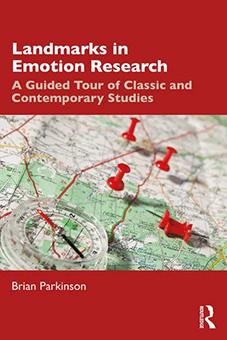
'This unique book guides readers round 50 landmark studies in the psychology of emotion. It explores questions including what gives emotion its distinct emotional quality, whether our faces always reveal what we are feeling, and how we can be in control of our emotions.
'The book traces a route through both classic and contemporary studies, covering factors that make different emotions different, causal processes, emotion regulation, the perception and production of facial expressions, interpersonal and group processes, and emotion concepts. Each section presents a series of studies which complement and build on those discussed earlier. Each study is carefully discussed for students to understand the key methods, results, conclusions, limitations, and impacts for the field. Parkinson provides expert guidance through the key points, taking a fresh look at the research methods and results, presenting alternative approaches and interpretations, and assessing how the findings have advanced or hindered progress in the field.
'Offering a clear orientation to the psychological literature on emotion, this book will be highly relevant for undergraduate and graduate students of psychology, particularly those taking courses on emotion, social psychology, and cognitive psychology.'
Photo Archives and the Place of Photography (Routledge 2025)
Edited by Geraldine Johnson
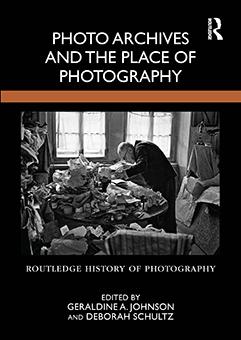
'This collection of chapters investigates the effects of mobility and place on a range of photographic archives and explores their potential for cross-disciplinary dialogue.
'The book explores photographic images used in the study of art, as well as the implications of placing European images of non-European cultures in an archive, album, library, or museum. It also addresses questions of digital space, which renders images more visually accessible, but further complicates issues relating to location. The contributors consider these issues through case studies based on a variety of archives, institutions, and disciplines. Just as photographs are conceived as unstable objects, so conventional borders between disciplines and locations are challenged and opened up with chapters drawing on a range of disciplinary theories and practices. The focus of the individual chapters is global, as seen in contributions not only on Euro-American topics, but also on Orientalizing approaches to photographing the Ancient Near East, photographic archives of Bedouin subjects, and digital photographic archives in an Iranian context.
'This book will be of interest to scholars of art history, visual and cultural studies, anthropology, and archaeology, as well as those working on the history and theory of photography, and histories and theories of the archive.'
Figuring Death in Classical Athens (OUP 2025)
Written by Emily Clifford
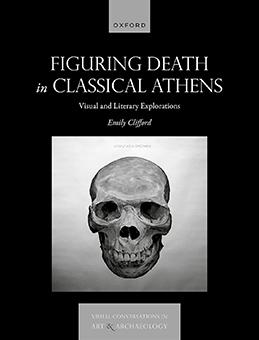
'Figuring Death in Classical Athens puts art and literature in conversation to explore how ancient Athenians grappled with the uncertainties of death. How did objects and texts generate thinking about what death is and might be like? Were Athenians aware of the imaginative frameworks that underpinned their thinking? Did they worry not just about death, but whether they could figure it out?
'Death in the ancient world has long been a subject of interest. Studies abound that examine its social and ideological dimensions, funerary practices, and changing attitudes and beliefs. This book takes a fresh approach, cutting across sub-disciplines (art, text, philosophy, and so on) to build a picture of how ancient art and literature got their audiences thinking-thinking not just about death but about its knowability. Whether in the theatre, at the symposium, or on the Acropolis, representations of death challenged Athenians by presenting problems of exteriority (how can the living know what dying might be like?) and particularity (can one person's experience hold for another? is death truly a 'leveller'?).
'The material covered is wide ranging. Unlike other studies, which often focus on either art or text and on one category of objects or one literary genre, the book pulls together exemplary texts and objects (including Plato, drinking cups, Sophocles, temple sculpture, and Thucydides) and makes each accessible to readers from multiple sub-disciplines and, indeed, from beyond Classics.
'It will be critical reading for those interested in ancient attitudes to death, as well as those interested in cultural imagination and intellectual history. As a multi-media study, it will appeal to those working on ancient image and text (and their intersection), and, more broadly, to those in other disciplines working on visuality, mediality, materiality, and culturally situated ideas.'
The Lunchtime Portraits: Oxford, 2010–2020 (self-published 2024)
Written by David Stumpp (Christ Church Rare Books Librarian)
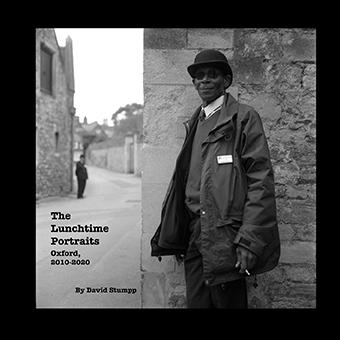
'The Lunchtime Portraits, as a body of work, is a pictorial microhistory of Oxford, England, a dynamic portrait taken over a span of 10 years, from 2010 to 2020.'
Read our news story about the publication of this book in October 2024.
Astrobiology and Christian Doctrine (CUP 2024)
Written by Andrew Davison
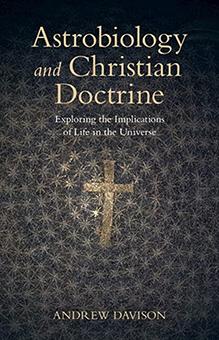
'In recent decades, powerful telescopes have enabled astrophysicists to uncover startling new worlds and solar systems. An epochal moment came in 1995, when a planet – 51 Pegasi b – was located orbiting a star other than our own sun. Since then, thousands of new planets have followed, and the question of life beyond earth has become one of the principal topics in discussions between science and religion. Attention to this topic has a long history in Christian theology, but has rarely been pursued at any depth.
'Writing with both passion and precision, Andrew Davison brings his extensive knowledge of Christian thought to bear, drawing particularly on the thought of Thomas Aquinas, as well as his training as a scientist. No book to date better prepares the Christian community for responding to evidence of other life, if it is found. And yet, we do not need to wait for that to have happened before this book shows its worth. In thinking about planets, creatures, and ecosystems beyond our planet, Davison already reinvigorates our theology for the earth.'
Ageing with Smartphones in Japan: Care in a visual digital age (UCL Press 2024)
Written by Laura Haapio-Kirk

'Older adults in Japan, one of the most ageing countries in the world, are starting to adopt the smartphone. What does this mean for friendship, gendered labour, multigenerational living, internal migration, health and indeed purpose in life (ikigai)? Based on 16 months of ethnographic research in urban Kyoto and in rural Kōchi Prefecture, Ageing with Smartphones in Japan follows people as they navigate social and personal shifts post-retirement.
'Examining how older women and men negotiate oppressive structures within society, the smartphone emerges as both challenging and perpetuating gender-based norms around care. In witnessing the response of older adults to the wider context of societal ageing and the various forms of precarity that it can engender, this book observes how people creatively navigate the challenges and opportunities of later life to define their own experience of ageing.
'The rise of digital visual communication among people in their 50s and older opens new possibilities for sociality and proximity among friends and family. It also presents a methodological challenge for researchers. This book responds with a series of graphic methodological experimentations, including co-created comics, participant drawings, and the author’s own fieldwork sketches and imaginative illustrations, to explore this fundamental shift in communication towards digital images.'
Learn more about Dr Haapio-Kirk's book release via her Substack blog.
Refugee Afterlives: Home, Hauntings, and Hunger (Liverpool University Press 2024)
Written by Ashwiny Kistnareddy
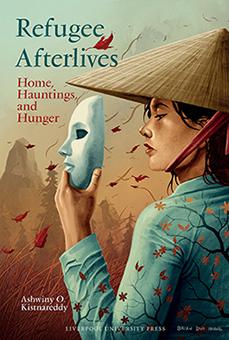
'This book compares fiction and non-fiction written by two generations of the Vietnamese diaspora, the so-called 1.5 and second generation in France and Canada, namely, Kim Thúy, Doan Bui, Clément Baloup, Hoai Huong Nguyen and Viet Thanh Nguyen (USA) as they grapple with their positionality as refugee(s’) children and the attendant problematics of loss. How they recuperate this loss by deploying notions such as home, hauntings and hunger is central to this analysis.
'Refugee Afterlives identifies the tools deployed by the 1.5 and second generation, tests their limits while understanding that these writers’ creations are constantly changing and shifting paradigms and will continue to be so over the next decades. Each writer is finding their own voice and pathway(s) and while these may sometimes overlap and contain commonalities, afterlives by default imply plurality and differences. This book offers ways of examining these texts, juxtaposing them, contrasting them, putting them in dialogue with each other, underlining their differences, but ultimately demonstrating that there is much to be gained in seeing how 1.5ers and the so-called second generation Vietnamese refugee writers contribute to a wider discussion of Vietnamese refugee(s’) children and what happens to them after resettlement.'
Making Sense of Chaos: A Better Economics for a Better World (Penguin 2024)
Written by Doyne Farmer
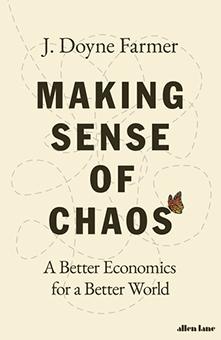
'Doyne Farmer is the world's leading thinker on technological change. For decades he has focused on the question of how we can make sense of the data of today to see where the world is going tomorrow. This wonderful book applies these insights to economics, addressing the big global issues of environmental sustainability, and the well-being and prosperity of people around the world’ Max Roser, Founder of Our World in Data
'We live in an age of increasing complexity, where accelerating technology and global interconnection hold more promise – and more peril – than any other time in human history. As well as financial crises, issues around climate change, automation, growing inequality and polarization are all rooted in the economy, yet standard economic predictions fail us.
'Many books have been written about Doyne Farmer and his pioneering work in chaos and complexity theory. Making Sense of Chaos is the first in his own words, presenting a manifesto for doing economics better. In a tale of science and ideas, Farmer fuses his profound knowledge with stories from his life to explain how to harness a scientific revolution to address the economic conundrums facing society.
'Using big data and ever more powerful computers, we can for the first time apply complex systems science to economic activity, building realistic models of the global economy. The resulting simulations and the emergent behaviour we observe form the cornerstone of complexity economics. This new science, Farmer shows, will allow us to test ideas and make significantly better economic predictions – and, ultimately, create a better world.'
Three North Country Astronomers (Society for the History of Astronomy, 1982 and 2024, 2nd edition, enlarged and amplified)
New under the Sun: Early Zionist Encounters with the Climate in Palestine (University of California Press 2024)
Written by Netta Cohen
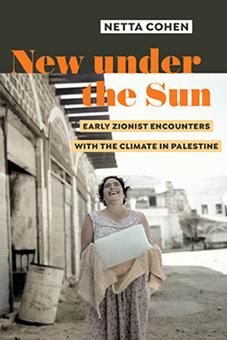
'New under the Sun explores Zionist perceptions of—and responses to—Palestine’s climate. From the rise of the Zionist movement in the late 1890s to the establishment of the State of Israel in 1948, Netta Cohen traces the production of climactic knowledge through a rich archive that draws from medicine and botany, technology and economics, and architecture and planning.
'As Cohen convincingly argues, this knowledge was not only shaped by Jewish settlers’ Eurocentric views but was also indebted to colonial practices and institutions. Zionists’ claims to the land were often based on the construction of Jewish settlers as natives, even while this was complicated by their alienated responses to Palestine’s climate. New under the Sun offers a highly original environmental lens on the ways in which Zionism’s spatial ambitions and racial fantasies transformed the lives of humans and nonhumans in Palestine.'
Sir George Biddell Airy: Astronomer Royal, Experimenter, and Public Servant (Society for the History of Astronomy, 2023)
Written by Allan Chapman

'At this year’s Spring Conference of the SHA [Society for the History of Astronomy], the SHA launched the fourth in its series of booklets on topics in astronomical history. This is Sir George Biddell Airy: Astronomer Royal, Experimenter, and Public Servant, by Allan Chapman (University of Oxford).'
'Airy (1801-1892) was one of astronomy’s most remarkable figures. He made no single outstanding discovery, though he came to be one of the most conspicuous members of his profession. He was a leading creator of institutional science who, from the early 1830s, addressed himself to the wholesale collection and revision of quantitative astronomical data on what might be called an industrial scale.'
The Routledge International Handbook of Harmful Cultural Practices (Routledge 2023)
'Chapter Six: The British Campaign to Ban Virginity Testing and Hymenoplasty' written by Saarrah Ray, Christ Church DPhil candidate in Law
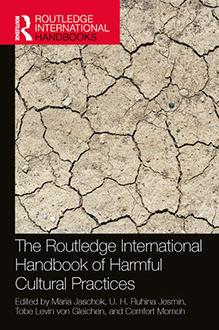
'This handbook looks at cross-cultural work on harmful cultural practices considered gendered forms of abuse of women. These include female genital mutilation (FGM), virginity testing, hymenoplasty, and genital cosmetic surgery.
'Bringing together comparative perspectives, intersectionality, and interdisciplinarity, it uses feminist methodology and mixed methods, with ethnography of central importance, to provide holistic, grounded theorizing within a framework of transformative research. Taking female genital mutilation, a topical, contested practice, and making it a heuristic reference for related procedures makes the case for global action based on understanding the complexity of harmful cultural practices that are contextually differentiated and experienced in intersectional ways. But because this phenomenon is enshrouded in matters of sensitivity and prejudice, narratives of suffering are muted and even suppressed, are dismissed as indigenous ritual, or become ammunition for racist organizing. Such conflicted and often opaque debates obstruct clear vision of the scale of both problem and solution.
'Divided into six parts:
• Discourses and Epistemological Fault Lines
• FGM and Related Patriarchal Inscriptions
• Gender and Genitalia
• Female Bodies and Body Politics: Economics, Law, Medicine, Public Health, and Human Rights
• Placing Engagement, Innovation, Impact, Care
• Words and Texts to Shatter Silence
'Comprised of 24 newly written chapters from experts around the world, this book will be of interest to scholars and students of nursing, social work, and allied health more broadly, as well as sociology, gender studies, and postcolonial studies.'
A Life in Pieces (Troubador Publishing 2023)
Biographical fiction written by Christopher Robinson
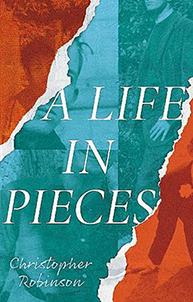
'Young Bartholomew, just out of university, finds himself charged with the task of going out to Thailand to sort and possibly edit and publish the papers of his dead grandfather, Ta. Whilst he knew that his Ta was gay, Bart is initially a little shocked by the material he finds. He becomes caught up in the task of piecing together the man who wrote them and begins to ask himself new questions about how we perceive and understand ourselves.
'Bart decides to publish the book about his grandfather’s journey growing up as a closeted gay boy in 1950’s and 1960’s England. It follows his journey in finding other possible selves both in the very different society of Greece in the 60’s and in the transformative possibilities of amateur acting. And after getting lost in the stifling atmosphere of an academic career and trying, through marriage and fatherhood, to mould himself into a ‘self’ which he could not maintain, Ta ostensibly finds release and a new sense of possibilities in Thailand. But was the new self any less fictive than earlier ones?
'In A Life in Pieces follow Bart and his grandfather, Ta, as they journey to find their true selves and understand their identities.'
The Oxford Handbook of History and International Relations (OUP 2023)
Edited by Mlada Bukovansky, Edward Keene, Christian Reus-Smit and Maja Spanu
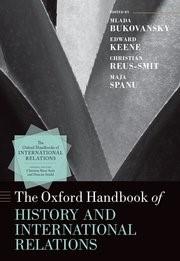
'Historical approaches to the study of world politics have always been a major part of the academic discipline of International Relations (IR), and there has recently been a resurgence of scholarly interest in this area. This Oxford Handbook examines the past and present of the intersection between History and IR, and looks to the future by laying out new questions and directions for research. Seeking to transcend well-worn disciplinary debates between Historians and IR scholars, the Handbook asks authors from both fields to engage the central themes of "modernity" and "granularity".
'Modernity is one of the basic organising categories of speculation about continuity and discontinuity in the history of world politics, but one that is increasingly questioned for privileging one kind of experience and marginalising others.
'The theme of granularity highlights the importance of how decisions about the scale and scope of historical research in IR shape what can be seen, and how one sees it. Together, these themes provide points of affinity across the wide range of topics and approaches presented here.'
The Imagination of the Mind in Classical Athens (Routledge 2023)
Edited by Emily Clifford and Xavier Buxton
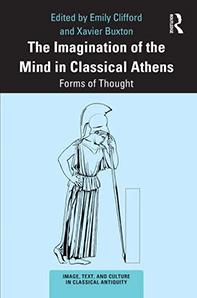
'This book explores the imaginative processes at work in the artefacts of Classical Athens. When ancient Athenians strove to grasp ‘justice’ or ‘war’ or ‘death’, when they dreamt or deliberated, how did they do it? Did they think about what they were doing? Did they imagine an imagining mind?
'European histories of the imagination have often begun with thinkers like Plato and Aristotle. By contrast, this volume is premised upon the idea that imaginative activity, and especially efforts to articulate it, can take place in the absence of technical terminology. In exploring an ancient culture of imagination mediated by art and literature, the book scopes out the roots of later, more explicit, theoretical enquiry. Chapters hone in on a range of visual and verbal artefacts from the Classical period. Approaching the topic from different angles – philosophical, historical, philological, literary, and art historical – they also investigate how these artefacts stimulate affective, sensory, meditative – in short, ‘imaginative’ – encounters between imagining bodies and their world.
'The Imagination of the Mind in Classical Athens offers a ground-breaking reassessment of ‘imagination’ in ancient Greek culture and thought: it will be essential reading for those interested in not only philosophies of mind, but also ancient Greek image, text, and culture more broadly.'
The Covid Pandemic and the World’s Religions (Bloomsbury 2023)
Edited by George D. Chryssides and Dan Cohn-Sherbok, with an introductory chapter from Christopher Lewis (former Dean of Christ Church)
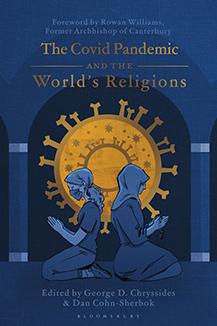
'Believers from a variety of faith communities were asked to assess how the Covid pandemic has affected their faith. The anthology collects their responses to key questions, such as:
· How does your faith explain why such events occur?
· How has it affected your religious practices?
· What changes has it necessitated?
· What differences might we expect once the pandemic is over?
· What have we learned from it?
'Two exponents of each major religion and a number of minority faiths comment on these issues, combined with a concluding essay by the editors assessing the overall impact of the pandemic on religion worldwide. Faiths explored include Jewish, Christian, Islamic, Hindu, Buddhist, Shinto, Sikh Baha'i, Jain, African Traditional Religion, Zoroastrian, Unitarian, Jehovah's Witnesses and Christian Science.'
Quartet: How Four Women Changed the Musical World (Faber & Faber 2023)
Written by Leah Broad

'Ethel Smyth (b.1858): Famed for her operas, this trailblazing queer Victorian composer was a larger-than-life socialite, intrepid traveller and committed Suffragette.
'Rebecca Clarke (b.1886): This talented violist and Pre-Raphaelite beauty was one of the first women ever hired by a professional orchestra, later celebrated for her modernist experimentation.
'Dorothy Howell (b.1898): A prodigy who shot to fame at the 1919 Proms, her reputation as the ‘English Strauss’ never dented her modesty; on retirement, she tended Elgar’s grave alone.
'Doreen Carwithen (b.1922): One of Britain’s first woman film composers who scored Elizabeth II’s coronation film, her success hid a 20-year affair with her married composition tutor.
'In their time, these women were celebrities. They composed some of the century’s most popular music and pioneered creative careers; but today, they are ghostly presences, surviving only as muses and footnotes to male contemporaries like Elgar, Vaughan Williams and Britten – until now.
'Leah Broad’s magnificent group biography resurrects these forgotten voices, recounting lives of rebellion, heartbreak and ambition, and celebrating their musical masterpieces. Lighting up a panoramic sweep of British history over two World Wars, Quartet revolutionises the canon forever.'
Experimental Philosophy and the Origins of Empiricism (CUP 2023)
Written by Peter R. Anstey (Fowler Visiting Fellow, Christ Church) and Alberto Vanzo
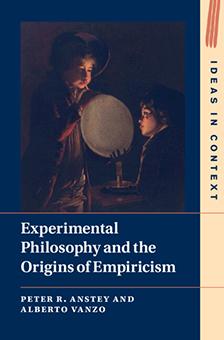
'The emergence of experimental philosophy was one of the most significant developments in the early modern period. However, it is often overlooked in modern scholarship, despite being associated with leading figures such as Francis Bacon, Robert Boyle, Isaac Newton, Jean Le Rond d'Alembert, David Hume and Christian Wolff. Ranging from the early Royal Society of London in the seventeenth century to the uptake of experimental philosophy in Paris and Berlin in the eighteenth, this book provides new terms of reference for understanding early modern philosophy and science, and its eventual eclipse in the shadow of post-Kantian notions of empiricism and rationalism. Experimental Philosophy and the Origins of Empiricism is an integrated history of early modern experimental philosophy which challenges the rationalism and empiricism historiography that has dominated Anglophone history of philosophy for more than a century.'
The Poems of W.B. Yeats Volume Three: 1899-1910 (Routledge 2023)
Edited by Peter McDonald
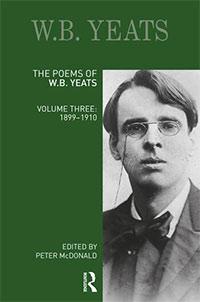
'In this multi-volume edition, the poetry of W.B. Yeats (1865–1939) is presented in full, with newly established texts and detailed, wide-ranging commentary. Yeats began to write verse in the nineteenth century, and over time his own arrangements of poems repeatedly revised and rearranged both texts and canon.
'This edition of Yeats’s poetry presents all his verse, both published and unpublished, including a generous selection of textual variants from the many manuscript and printed sources.
'The edition also supplies the most extensive commentary on Yeats’s poetry to date, explaining specific references, and setting poems in their contexts; it also gives an account of the vast range of both literary and historical influences at work on the verse.'
A Gaping Wound: Mourning in Italian Poetry (Legenda 2022)
Edited by Adele Bardazzi, Francesco Giusti and Emanuela Tandello
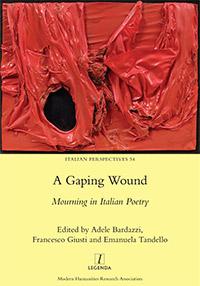
'Poetry has always maintained a particular relationship with mourning and its rituals, but what is it that lyric discourse has to offer in coping with death, grief, and bereavement? On the other hand, how does mourning become a central creative force in lyric poetry? How does this affect the nature of its discourse and the desires it performs?
'Focusing on poems by Giacomo Leopardi, Guido Gozzano, Giorgio Caproni, Giorgio Bassani, Amelia Rosselli, Antonella Anedda, and Vivian Lamarque, the essays collected in this volume explore how poetry dwells on the boundaries between high lyric and vernacular forms, the personal and the political, the local and the national, the individual and the collective, one’s own story and public history, the masculine and the feminine, individual expression and shared language.
'The Italian poetic tradition finds two crucial milestones in two collections of poems devoted to the lost beloved, Dante’s Vita Nova and Petrarch’s Canzoniere, and its modern and contemporary ramifications have much to offer for reflection on the ethics and poetics of mourning.'
Hedda Gabler by Henrik Ibsen (Bloomsbury 2022)
Edited by Sophie Duncan
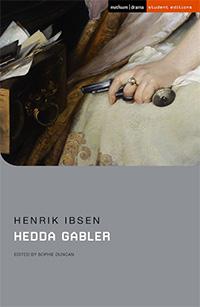
'Universally condemned in 1890 when it was written, Hedda Gabler has subsequently become one of Ibsen's most performed and studied plays. Blending comedy and tragedy, Ibsen probes the thwarted aspirations and hidden anxieties of his characters against a backdrop of contemporary social Habits and hypocrisies.
'This Methuen Drama Student Edition is published with Michael Meyer's classic translation, and with commentary and notes by Dr. Sophie Duncan. These offer a contemporary lens on the play's gender politics, and consider some key twentieth and twenty-first century productions of Hedda Gabler, which include actresses like Maggie Smith, Harriet Walker, and Ruth Wilson taking on the iconic titular role.'
Thucydides' The Peloponnesian War Book VI and The Peloponnesian War Book VII (CUP 2022)
Edited by Christopher Pelling
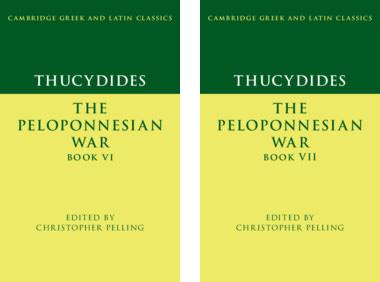
'In Books 6 and 7 Thucydides' narrative is, as Plutarch puts it, 'at its most emotional, vivid, and varied' as he describes the Sicilian Expedition that ended so catastrophically for Athens (415–413 BCE). Book 6 features tense debates both at Athens, with cautious Nicias no match for risk-taking Alcibiades, and at Syracuse, with the statesmanlike Hermocrates confronting the populist Athenagoras. The spectacle of the armada is memorably described; so is the panic at Athens when people fear that acts of sacrilege may be alienating the gods, with Alcibiades himself so implicated that he is soon recalled. The Book ends with Athens seeming poised for victory; that will soon change, and a sister commentary on Book 7 is being published simultaneously. The Introduction discusses the narrative skill and the part these books play in the architecture of the history. Considerable help with the Greek is offered throughout the Commentary.'


